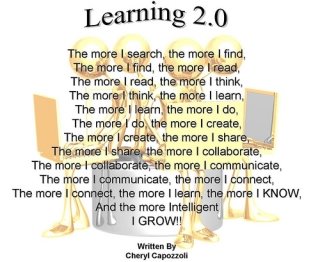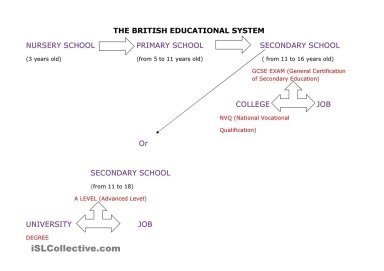Урок "Освіта у Великобританії"
Мета: ознайомити учнів з особливістю навчання у Британії, британськими типами шкіл, поглибити знання англійської мови, виховувати повагу та інтерес до іноземної системи освіти.
План-конспект уроку
Тема: Освіта у Великобританії.
Мета: Практична: формувати лексичні навички, навички читання та вимови.
Освітня: ознайомити учнів з новою лексикою, особливістю освіти у Великобританії.
Розвиваюча: розвивати мовну інтуїцію, мовну реакцію та ерудицію учнів.
Виховна: виховувати в учнів зацікавленість у розширенні своїх знань, інтерес до іноземної системи освіти.
Тип уроку: урок вдосконалення мовних навичок.
Обладнання: підручник, робочий зошит, картки, ноутбук, презентація.
Підручник: Карп`юк О.Д. Англійська мова: Підручник для 10-го класу загальноосвітніх навчальних закладів. Рівень стандарту.
PROCEDURE
- Greeting.
Good morning pupils. I’m happy to see you. How are you? Do you like our today’s weather? You know that you should be hard-working and attentive to get good results at the end of our lesson. So let’s start our work.
- Warming up.
Look at your cards. Here you can see a poem. Read it, translate and express your opinion according to it.

- Listening.
Pre-listening activity.
At our previous lessons we’ve spoken about idioms. Do all English idioms have association with the original meaning of individual words? Is it always easy to detect their meaning correctly? Give your reasons.
Look at the following idioms and try to guess their meaning.
- plugging away;
- you can’t teach an old dog new tricks;
- cold feet;
- in the same boat.
Listening.
Listen to the dialogue.
Ivan: Oh, no. There’s one man who must be close to seventy. And he keeps plugging away.
Sophie: Maybe there’s not so much truth in that old proverb – “You can’t teach an old dog new tricks.”
Ivan: It’s hard getting used to this kind of school. I remember school being so strict – everybody sitting in rows quietly doing drills and exercises. Our classroom is so relaxed.
Sophie: Well, I think it’s good you’re going to school like that. Just the thought of facing a teacher again gives me cold feet.
Ivan: Oh, it’s not so bad. It helps that all the students are in the same boat - we’re all adults back in school to improve our English.
Post-listening activity. Discussion.
- What do you think Ivan’s English class is like?
- Why is he studying English?
- How do you feel about studying English?
- Which language in the world is spoken by most people? Does it have the largest vocabulary?
- Presentation of a new topic.
Today we are going to speak about schools in Great Britain, about the school subjects children do at school, about the exams they take and about some school rules. There many schools that differ from ours. It will be rather interesting for you to read about them. What do you know about schools in GB? May you’ve watched films, read some articles?
Some pupils express their points of view.
Watch a presentation “British types of school”. Do you like this presentation? What do you like the best? What do you don’t like? Why?
- Reading.
Read the text and try to work out the meaning of underlined words. Now we will read about education and types of schools in GB in details.
Nursery school – a school for young children of two or three to five years of age, where children learn such things as numbers, letters, colors, etc., and may begin to read and write.
Playgroup – a group in which children aged 2-5 meet to learn through playing. Playgroups started in Britain in the 1960s because the British government did not provide many schools for children of this age.
Creche – day-care centre, a place (e.g. provided at a place of work), where babies and small children are cared for while their parents work.
Kindergarten – a school or class for young children usually age 5.
Infant school – a school for children aged 5 to 7 or 8. At infant schools reading, writing and arithmetic are taught for about 20 minutes a day during the first year, gradually increasing to about 2 hours in the last year. By the time children are ready for the junior school they will be able to read, write, do simple addition and subtraction of numbers.
Junior schools – a school for children aged between 7 and 11. At junior school there are set periods of arithmetic, reading, composition. History, Geography, Nature Study, Art and Music, Physical Education, Swimming are also on the timetable.
Primary school – a school for children between 5 and 11 years old in England and Wales, often divided into an infant school and junior school.
Preparatory school – a private school for children between the ages of 8 and 13, where they are made ready to attend the school for older pupils, usually a public school. Only a small percentage of school-age children attend these schools. Most preparatory schools are for boys only or for girls only.
Secondary school – a school for children between the ages of 11 and 16 or 18, above the level of primary education.
Secondary modern school – a school for children over the age of 11 who are not expected to go on to higher study later. Although most children go to comprehensive schools now, there are still some secondary modern schools.
Comprehensive school – a school for pupils over the age 11 which teaches children of all abilities. This system was introduced in 1965 and largely replaced the old system of grammar schools and secondary moderns, which took pupils depending on whether they had passed an exam called the eleven-plus (11+). Over 80% of British pupils now attend comprehensive schools. At 16 students in England and Wales take GCSE examinations (the General Certificate of Secondary Education). At 18 some students take A-level examinations, usually in two or three subjects.
Grammar school – a school for children over the age 11, who are specially chosen to study for examinations which may lead to higher education.
Public school – a private fee-paying British and especially English secondary school where children usually live as well as study. Public schools are known for their high academic standards and are considered being prestigious.
Private school – a school not supported by government money, where education must be paid for. In Britain a private school is often called a prep school or public school. Only a small number of children attend private schools. Most attend state.
Boarding school – a school at which pupils live as well as study. Most British public schools are boarding schools.
Sixth form college – a British state school for students over the age of 16. Some young people prefer to go to the college because they feel it gives them more freedom than an ordinary school. A college is a place where people go for more advanced in education after school, especially in a particular subject or professional skill.
Polytechnic=poly – a college of higher education, similar to a university, providing training and degrees in many subjects, especially those which prepare people for particular jobs in science, industry etc.
University – a place of education at the highest level, where degrees are given.
Bachelors Degree – the general name for the first degree, most commonly a BA (Bachelor of Arts) or BSc (Bachelor of Science).
Master’s Degree – the general name for a second (postgraduate) degree, most commonly an MA or MSc.
Doctorate – the highest academic qualification. This usually carries the title PhD (=Doctor of philosophy).
- Speaking.
Answer the questions.
- What kinds of school do children aged 2-5 attend?
- What do they learn there?
- What do children do at infant schools?
- What subjects do children study at junior schools?
- When do children start primary school?
- Most children attend prep schools, don’t they?
- When do English children take their GCSE examinations?
- What are public schools known for?
- What makes a boarding school different from a comprehensive school?
- Why do many young people prefer to go to a sixth-form college?
- What makes a polytechnic different from the university?
- Summing up.
 Look, read and comment.
Look, read and comment.
I hope you have got to know useful information, which you will need.
- If you had an opportunity to study in the British school which one would you prefer?
- What advantages can you name in British education?
- What disadvantages?
- Homework.
Your homework will be the next: learn new words, tell about British types of schools, do some exercises in your WB.
- Marks.
Your marks for today’s lesson are…. The lesson is over. Good bye!


про публікацію авторської розробки
Додати розробку
